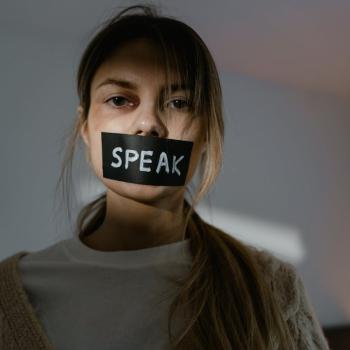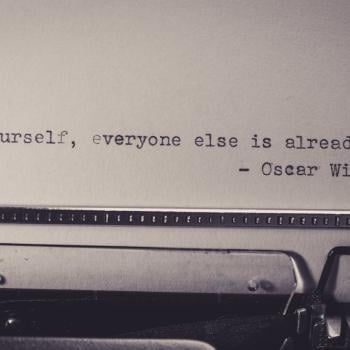
“The wise man doesn’t give the right answers,
he poses the right questions.”
~ Claude Levi-Strauss
I persist in asking these questions. Some may think they lead to bitterness or conflict. However, I hope they guide us toward a deeper understanding. Being outside the framework of organized religion has allowed me to tune into the subtle messages and rhythms of the universe, embracing the peace and solace I find. My sense of comfort stems not from a definitive belief system but from an ongoing quest for understanding that challenges everything.
What Do I Fear?
Having been raised as a Christian, I am well acquainted with the concept of the Christian holy book. The Bible often suggests that we should not succumb to fear. As Christians, we observe instances such as the angels communicating with the shepherds, urging them to “Fear not,” along with numerous passages in both Jewish and Christian scriptures that encourage us to avoid fear.
We recognized that eliminating fear or the necessity for caution isn’t feasible. Living entirely without fear could pose risks for both us and others. While we understood the difference between reasonable and unreasonable fears, many Christians became somewhat fixated on their anxieties, striving to remove those fears from the world. This fixation was further fueled by a person on stage, wielding power, who reminded us weekly of what we should fear.
Where do we get the ideas of what we should be afraid of?
Our family of origin often influences our fears. They warn us about dangers, like a hot stove, leading us to trust their judgments in other areas. I finally asked myself, “Do they truly understand the subjects they caution me about, or are they simply fearful due to their lack of knowledge?” The people around us frequently share information from similar individuals, and their sources may not be reliable or credible.
My maternal grandparents were good people, yet their understanding of the world largely came from a small Baptist church in a remote area. Like many other churches, they could remove that person and seek someone else to provide their preferred information when they disagreed with the information presented. Religion often detaches us from societal norms and fosters unique narratives. Preachers, politicians, and salespeople know that fear makes us susceptible to their solutions.
While we cherish our parents and grandparents, examining the origins of their insights or their absence from them is essential. We can appreciate the valuable lessons they impart while recognizing that their perspectives may be influenced by their environments and social circles. They might not always have the most accurate information and often share what they’ve heard without thoroughly researching or verifying it across various sources.
Before we follow someone blindly, like a pastor, we should recognize their limitations in understanding. They are probably relaying what was conveyed to them. Often, inquiries and challenges to their beliefs have been mainly dismissed, leading them to transmit the same information, regardless of its truth, logic, or practicality.
Theology and much of folklore wisdom stem from assumptions shaped by a narrow perspective. To gain deeper insight into this concept, explore Plato’s Allegory of the Cave.
Most things we worry about never happen.
As I noted earlier, some concerns can cause fear. However, many of these fears are unfounded. I take specific steps to secure my home against intruders, yet, given our location, I have little reason to be fearful. I could easily spend all my waking hours and sleepless nights anxious about potential threats.
Now, after 60 years of experience, I reflect on my past. I am less impressed by the precautions I took due to my fears, whether real or imagined and more impressed by the moments I dared to explore on my own. This led me to try skydiving, learn hunting, and confront some of the fears that my father may have instilled in me. I ceased to follow authority figures without question, understanding that holding power does not necessarily mean possessing wisdom.
You might have observed a societal shift towards a more mystical approach to spirituality. Mystics derive their insights from personal experiences rather than merely echoing beliefs passed down to them (theology). Unlike theologians, who seek to validate historical assumptions, mystics do not search for reinterpreting old ideas to attract audiences to their next event.
We must emerge from the cave, view the world from new perspectives, and ask sincere questions rather than repeating our past fears.
How religion uses fear to control.
Despite the existence of countless Protestant denominations within Christianity, each with its unique perspectives, we often face admonishments when we question their teachings or choose to embark on an individual path of exploration. They insist, “You will never find safety outside our community.” They claim to possess the ultimate truth, asserting that God supports their views, warning us that dismissing their guidance would be unwise. However, many pastors now recognize that they have invested excessive energy in nurturing our fears to uphold doctrines and beliefs that were often merely assumptions.
Religious followers deeply invest in the fear of being outside the protection of their belief system. They obsessively rehearse that this is what they should be afraid of, especially of things they do not understand or have not experienced. Therefore, if you are brave enough to challenge the organization’s assumptions, be prepared for the fear-infused warnings from the faithful.
There’s also the implication, “You experience hardship if you don’t conform.” The organization, the pastor’s salary, and their concepts of well-being rest on assumptions that must be protected at any cost. Acknowledging mistakes or the possibility of unknown information can jeopardize the entire system. Driven by a fear of organizational collapse, they want you to feel that being disconnected from their assumptions and failing to defend them puts you at risk.
They caution, “You will not find community.” This warning impacts us strongly due to our profound need for connection. Most spiritual practices emphasize larger group interactions over solitude and stillness, fostering a superficial sense of community that only partially satisfies us. Time and again, we demonstrate that smaller groups offer greater intimacy, while organized religion often prioritizes the organization’s goals rather than addressing individual needs for connection.
My previous denomination warned, “You will expose yourself to the Devil,” whenever I questioned its doctrines or stopped attending services. They treated me like a contagious virus, one I might contract once outside their shield. My spiritual journey significantly progressed when I recognized that the church had never truly safeguarded me.
The church promised to protect me, yet when I faced genuine emotional struggles, they failed to comprehend, and they were reluctant to dedicate time to support my recovery. My grief seemed unimportant to them, and their commitment to understanding trauma-related issues was minimal. After two decades of observing their practices, I ultimately recognized that their focus was not on my protection but on safeguarding their organization’s longevity and the careers of their ministry personnel.
I no longer fear a being I don’t believe in. As I began to think independently and listen to my experiences and intuition, I understood that concepts like hell and the devil were merely assumptions that fueled the fear trapping me in religion.
Responses to challenges posed against Christianity often say, “You won’t know how to live without us.” I used to confront others by asking, “If you don’t trust the Bible, where will your truth come from?” However, in recent years, I have learned that wisdom and truth are not confined to a group with shared worldviews. Often, they emerge when we venture beyond our comfort zones, recognizing that wisdom can be found in various sources, such as nature, the universe, mindfulness, and personal experiences, to name just a few.
Since I reduced my Bible reading, I feel like I’ve improved. The text often contradicts itself and falls short of a life guide or instructional manual, regardless of the label applied. While it contains valuable insights, viewing it as the only source of universal wisdom requires much effort.
The preachers I once respected were exceptionally skilled at conveying the idea, “The world is against you.” This resonated with the congregations I attended, as they often preferred to escape reality by immersing themselves in an artificial community. However, if we take a step back and look at the universe more objectively, we may discover the contrary. Some might even argue that the world (or universe) actually supports our advancement.
When we step beyond narrow religious beliefs, we don’t put ourselves at risk; instead, we create an opportunity to align with our world and experience more of what we seek.
If God exists, maybe this was what was meant by “Fear not!”
Keep asking good questions!
Be where you are, Be who you are, Be at peace!
Karl Forehand
Good Questions – Why Would God Require Worship?
Good Questions – Are we Addicted to Religion?
Good Questions – Why is God’s Punishment So Extreme?
Good Questions – Did My Tradition Get it Right?
Travel Tips for the Desert – Part 3
Travel Tips for the Desert – Part 2
Travel Tips for the Desert – Part 1
Our New Course is ready to review for FREE! Start Here
YouTube Playlist – click here
Religious Trauma Resources
Karl Forehand is a former pastor, podcaster, and award-winning author. His books include Out into the Desert, Leaning Forward, Apparent Faith: What Fatherhood Taught Me About the Father’s Heart, The Tea Shop and Being: A Journey Toward Presence and Authenticity. He is the creator of The Desert Sanctuary podcast and community. He is married to his wife Laura of 35 years and has one dog named Winston. His three children are grown and are beginning to multiply! You can read more about the author here.













